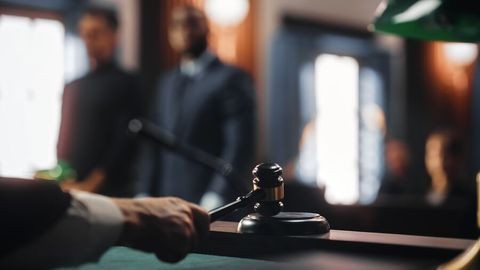Insurers’ COVID-19 Notepad: What You Need to Know Now - Week of October 10, 2022
Client Alert | 1 min read | 10.10.22
Courts Dismiss COVID-19 Business Interruption Claims
On September 29, 2022, the district court for the Eastern District of Pennsylvania granted Zurich American Insurance Company’s motion to dismiss an orthopedic healthcare business’ COVID-19 business interruption claim. The court concluded that the policy’s “direct physical loss or damage” provisions do not cover loss of use, which “is not structural or physical damage.” Order at 7. Accordingly, no coverage was available because the plaintiff “has not alleged physical damage to its properties but only economic loss.” Id. The case is Reconstructive Orthopedic Assocs. II, LLC v. Zurich Am. Ins. Co.
On September 29, 2022, the district court for the Western District of Missouri granted Employers Insurance Company of Wausau’s motion to dismiss a restaurant group’s COVID-19 business interruption complaint. The court found the restaurant did not show a direct physical loss or damage that it suffered to trigger coverage under its policy, including its “[g]eneric allegations that the virus was, or likely to be, on surfaces in a property.” Order at 6. According to the court, the virus and the related government shutdown orders do not on their own cause physical loss or damage. Id. at 7. Even if the virus were to have altered the property, which the complaint did not allege, the policy’s contamination exclusion applies to bar coverage. Id. at 9, 15. The case is One Group Hospitality, Inc. v. Employers Insurance Co. of Wausau.
Contacts
Insights
Client Alert | 6 min read | 11.26.25
From ‘Second’ to ‘First:’ Federal Circuit Tackles Obvious Claim Errors
Patent claims must be clear and definite, as they set the boundaries of the patentee’s rights. Occasionally, however, claim language contains errors, such as typographical mistakes or incorrect numbering. Courts possess very limited authority to correct such errors. The United States Court of Appeals for the Federal Circuit has emphasized that judicial correction is appropriate only in rare circumstances, where (1) the error is evident from the face of the patent, and (2) the proposed correction is the sole reasonable interpretation in view of the claim language, specification, and prosecution history. See Group One, Ltd. v. Hallmark Cards, Inc., 407 F.3d 1297, 1303 (Fed. Cir. 2005) and Novo Indus., L.P. v. Micro Molds Corp., 350 F.3d 1348, 1357 (Fed. Cir. 2003).
Client Alert | 5 min read | 11.26.25
Client Alert | 6 min read | 11.25.25
Brussels Court Clarifies the EU’s SPC Manufacturing Waiver Regulation Rules
Client Alert | 3 min read | 11.24.25





